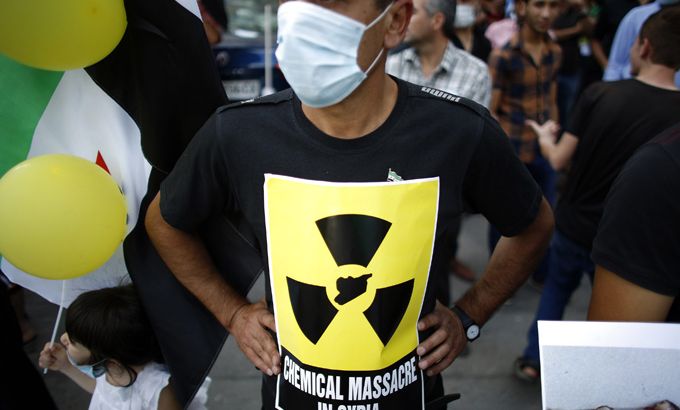
Syria’s ‘red lines’ and shameful milestones
As world leaders question who did what and why, we ask how they will react to allegations of chemical weapons use.
It has been a week in which events in Syria have grabbed the attention of the international community. The Syrian National Coalition says more than 1,000 people have died after government forces fired rockets with toxic agents.
I think the ease with which people are accusing the Syrian government of carrying out this atrocity comes with quite a few arguments. First of which is that it is the Syrian government that has possession of such chemical warfare weapons and the capability. However, people forget that the rebel forces equally possess such chemical warfare weapons.
The attack allegedly happened in the eastern Damascus suburb of Ghouta in the early hours of Wednesday morning.
The Syrian government has denied the claims.
The US, France and Britain have said in the past that they have evidence that chemical weapons have been used in the Syrian conflict – something Barack Obama, the US president, has referred to as a “red line”.
But if the allegations are true, Wednesday’s attack would be by far the most serious.
Ban Ki-moon, the UN secretary-general, has asked the Syrian government to allow UN inspectors full access to investigate these latest allegations of chemical attacks.
This follows rising international condemnation, with France leading the way with calls for stronger action.
France says it is willing to use force if the allegations prove true. While Ahmed Davutoglu, Turkey’s foreign minister, says that all red lines have been crossed. He has also criticised the UN for its inaction.
But Iran has rejected claims that Syrian troops deployed the weapons, saying that if such an attack was proven, the rebels were responsible.
Al Jazeera cannot independently verify videos of what happened in Ghouta last Wednesday but to know more, we are joined by Dr Ralf Trapp, a chemist and toxicologist. Trapp is also an independent consultant in chemical and biological weapons disarmament in Geneva.
“What we’ve seen on these video images posted on the Internet, clearly shows the aftermath of an attack with a poisonous substance,” says Trapp. “It shows a large number of people who are suffocating, who are showing difficulties of breathing, [showing] all the signs of intoxication with a very strong toxic chemical agent.
“At the same time, [there] are no indications of any other injuries, no indication of cuts and bruises, things that would be the impact of explosives and other types of weaponry. So I think we must unfortunately be very certain that a toxic agent was used.”
Child refugees
There is another shameful milestone that has apparently been reached in Syria this week.
On Friday, the UN said the number of children who have fled the violence has now reached one million. Most have gone to surrounding countries like Iraq, Turkey, Lebanon, Jordan and Egypt.
The UN estimates that 740,000 Syrian refugees are below the age of 11 and more than 7,000 Syrian children are believed to have died since the conflict began two years ago.
It is another reminder of the fact that amid all the talk and questions over who did what and why, it is the Syrian people who continue to suffer the brunt of this conflict.
To discuss the week’s events in detail, Inside Syria, with presenter Hazem Sika, is joined by guests: Jeffrey White, a defence fellow at the Washington Institute for Near East Policy, and Ammar Waqqaf, a Syrian political activist.
|
“First of all I don’t think the regime cares very much about what the UN thinks. It completely controlled the access of the UN inspectors to the areas that were struck and we’re seeing that there is no progress on inspectors getting any closer to the areas. “But on the military side the regime has been having a lot of trouble in Damascus … the regime I think has seen a very difficult fight in the Damascus suburbs and I think the motivation may well have been to try and break that resistance to achieve some kind of significant success in these areas.” Jeffrey White, a defence fellow at the Washington Institute for Near East Policy |